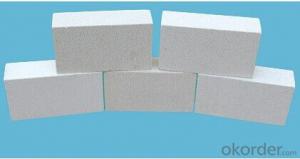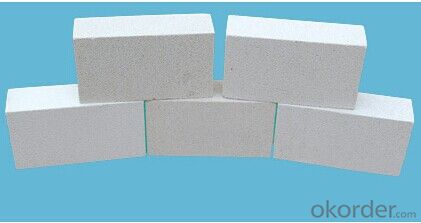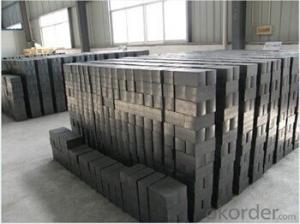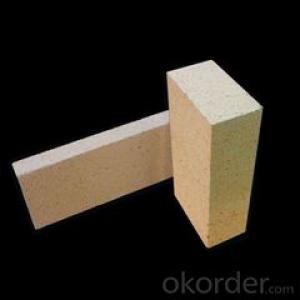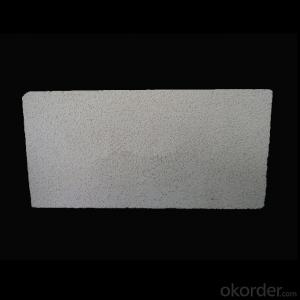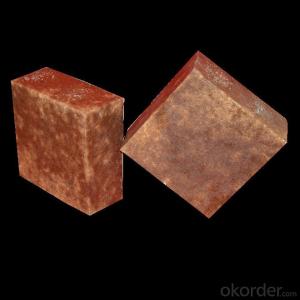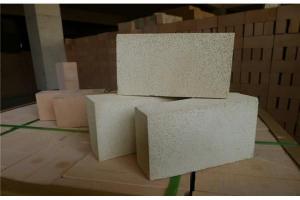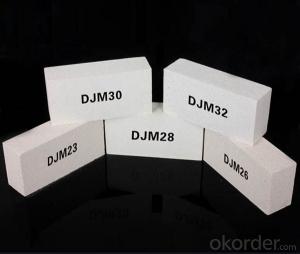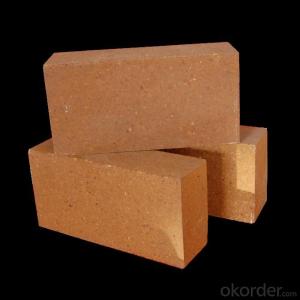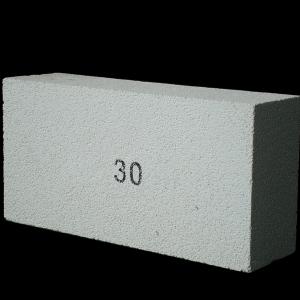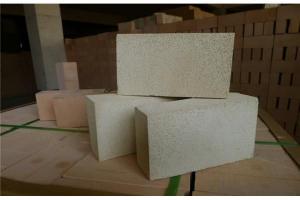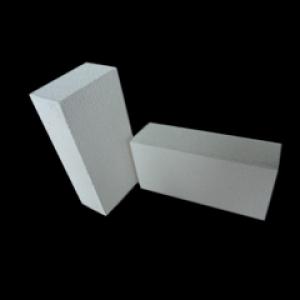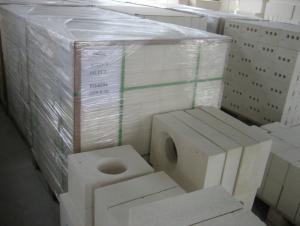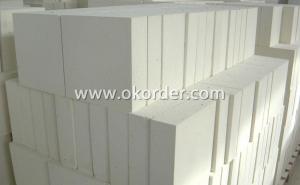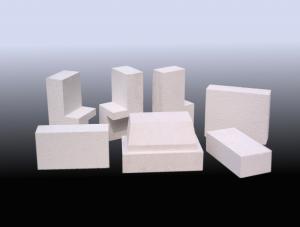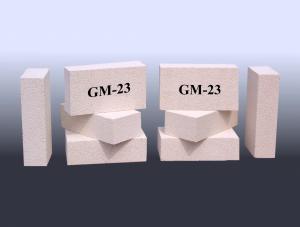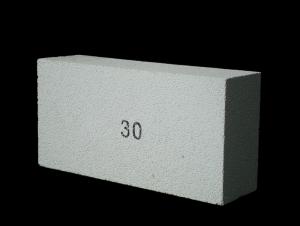Insulating Fire Brick with Anti-Permeability Carbon
- Loading Port:
- China Main Port
- Payment Terms:
- TT OR LC
- Min Order Qty:
- -
- Supply Capability:
- -
OKorder Service Pledge
OKorder Financial Service
You Might Also Like
Magnesia Carbon brick is resin-bonded brick made from dead-burned or fused magnesia and graphite. Anti-oxidant is added if required. Magnesia Carbon brick has good performance in thermal resistance, corrosion resistance and spalling resistance. Widely used in converters, EAFs, ladles and refining furnaces.
Magnesia Carbon brickis a very mature product in our area. As our area has 1/4 world storage of best quality Magnesia ore, we can provide as good quality as European Mg-C bricks with competitive prices. We also provide basic refracotry lining solution for CONVERTER, EAF, LF, LADLE, etc. these industrial furnaces.
The following are typial properties as per Chinese latest version standard. We also provide customer-tailored products as per customer special reuirements.
Specification
Sl. No. | MT10A | MT10B | MT10C | MT14A | MT14B | MT14C | MT18A | MT18B | MT18C |
A.P. % | 2 | 3 | 4 | 2 | 3 | 4 | 1 | 2 | 3 |
B.D. g/cm3 | 3.04 | 2.97 | 2.93 | 2.99 | 2.94 | 2.90 | 2.95 | 2.91 | 2.88 |
CCS MPa | 40.2 | 34.8 | 29.8 | 35.6 | 30.5 | 26.7 | 32.8 | 27.3 | 25.3 |
Bending strength mpa 1400×30min | 11.8 | 9.6 | 8.2 | 13.4 | 11.90 | 8.8 | 13.8 | 11.4 | 9.3 |
MgO % | 81.34 | 80.10 | 78.73 | 78.16 | 76.53 | 75.24 | 73.68 | 71.99 | 70.56 |
C % | 11.43 | 11.72 | 11.18 | 15.90 | 15.65 | 15.87 | 19.82 | 19.76 | 19.41 |
SiO2 % | 0.91 | 0.97 | 1.04 | 0.98 | 0.96 | 1.05 | 0.99 | 0.96 | 1.08 |
Fe2O3 % | 0.43 | 0.48 | 1.56 | 0.42 | 0.47 | 1.57 | 0.41 | 0.47 | 1.60 |
CaO % | 1.25 | 1.24 | 1.38 | 1.24 | 1.25 | 1.37 | 1.26 | 1.25 | 1.36 |
Fused megnesia specification.
BRAND | CHEMICAL PROPERTY % | B.D. OF GRAIN > g/cm3 | ||||
MgO > | SiO2< | CaO< | Fe2O3< | Al2O3< | ||
FM990 | 99.0 | 0.3 | 0.8 | 0.3 | 0.2 | 3.50 |
FM985 | 98.5 | 0.4 | 1.0 | 0.4 | 0.2 | 3.50 |
FM980 | 98.0 | 0.6 | 1.2 | 0.6 | 0.2 | 3.50 |
FM975 | 97.5 | 1.0 | 1.4 | 0.7 | 0.2 | 3.45 |
FM970 | 97.0 | 1.5 | 1.5 | 0.8 | 0.3 | 3.45 |
FM960 | 96.0 | 2.2 | 2.0 | 0.9 | 0.3 | 3.35 |
- Q: Can insulating fire bricks be used for insulation in cold storage facilities?
- Yes, insulating fire bricks can be used for insulation in cold storage facilities. These bricks have excellent thermal properties and can effectively prevent heat transfer, making them suitable for maintaining low temperatures in cold storage facilities.
- Q: Are insulating fire bricks resistant to thermal stress?
- Yes, insulating fire bricks are designed to be highly resistant to thermal stress. They can withstand high temperatures without cracking or breaking, making them ideal for applications where thermal insulation and durability are required.
- Q: Are insulating fire bricks resistant to thermal conductivity?
- Yes, insulating fire bricks are designed to be resistant to thermal conductivity. These bricks are made from materials with low thermal conductivity, such as lightweight refractory fibers or insulating materials like vermiculite or perlite. The purpose of insulating fire bricks is to provide thermal insulation and prevent heat transfer, making them ideal for applications where temperature control is important, such as in kilns, furnaces, or fireplaces. By reducing thermal conductivity, insulating fire bricks help to retain heat within the desired area and minimize energy loss, making them an effective choice for insulation in high-temperature environments.
- Q: Are insulating fire bricks resistant to nitrogen oxides?
- Yes, insulating fire bricks are resistant to nitrogen oxides.
- Q: Can insulating fire bricks be used for insulation in ovens and kilns?
- Yes, insulating fire bricks can be used for insulation in ovens and kilns. Insulating fire bricks are specifically designed to withstand high temperatures and provide excellent thermal insulation. They are made from lightweight materials like clay and other refractory materials that have low thermal conductivity. This means that they can effectively retain heat and prevent it from escaping, making them ideal for use in ovens and kilns where heat retention is crucial. Additionally, insulating fire bricks are resistant to thermal shock, meaning they can withstand rapid changes in temperature without cracking or breaking. Overall, insulating fire bricks are a reliable choice for insulating ovens and kilns, ensuring efficient heat distribution and energy conservation.
- Q: Can insulating fire bricks be used in the construction of incineration kilns?
- Yes, insulating fire bricks can be used in the construction of incineration kilns. These bricks have excellent thermal insulation properties, which helps in maintaining high temperatures inside the kiln while minimizing heat loss to the surroundings. This is crucial in incineration processes where high temperatures are required to efficiently burn waste materials. Additionally, insulating fire bricks are resistant to thermal shock and can withstand the extreme temperatures and harsh conditions typically found in incineration kilns.
- Q: Can insulating fire bricks be used for insulation in power plants?
- Insulating fire bricks have proven themselves to be effective for insulation purposes in power plants. These bricks are specifically designed to possess exceptional thermal insulation properties, making them highly suitable for applications involving high temperatures. They can endure extreme temperatures and effectively insulate power plant operations, thus preventing heat loss and enhancing energy efficiency. In power plants, insulating fire bricks find extensive usage in various areas, including furnaces, boilers, kilns, and chimneys. They can be utilized to line the walls, floors, and roofs of these structures, aiming to minimize heat transfer and maintain optimal temperatures within the equipment. The utilization of insulating fire bricks in power plants offers numerous benefits. These bricks aid in reducing heat loss, enhancing combustion efficiency, and alleviating thermal stress on the equipment. They create a barrier against heat transfer, thereby conserving energy and minimizing operational expenses. Moreover, their insulation properties contribute to a safer working environment for power plant personnel. Nevertheless, it is important to exercise caution when selecting insulating fire bricks for power plant insulation. The specific requirements and conditions of the power plant should be carefully considered. Factors such as operating temperature, exposure to chemicals, and mechanical stress should be taken into account to ensure that the bricks are capable of withstanding harsh conditions and delivering long-lasting insulation performance.
- Q: Can insulating fire bricks be used in the construction of lime production kilns?
- Yes, insulating fire bricks can be used in the construction of lime production kilns. Lime production kilns require high temperatures to convert limestone into lime, and insulating fire bricks are known for their ability to withstand and retain high temperatures. These bricks have high insulating properties, allowing the kiln to reach the desired temperature quickly and efficiently, while also minimizing heat loss during the production process. Insulating fire bricks are also lightweight and easy to handle, making them suitable for use in the construction of lime production kilns. Additionally, these bricks have good thermal shock resistance, meaning they can withstand rapid temperature changes without cracking or breaking, which is crucial in the kiln environment. Overall, the use of insulating fire bricks in the construction of lime production kilns can help optimize the efficiency and effectiveness of the lime production process.
- Q: Can insulating fire bricks be used in pizza ovens or outdoor grills?
- Yes, insulating fire bricks can be used in pizza ovens or outdoor grills. These bricks are designed to withstand high temperatures and provide excellent insulation, making them ideal for retaining heat and creating consistent cooking conditions in pizza ovens and grills.
- Q: Are insulating fire bricks resistant to water penetration?
- Yes, insulating fire bricks are resistant to water penetration. These bricks are designed to have a low porosity and are made from materials that are not prone to absorbing or retaining water. They are typically composed of lightweight refractory materials such as alumina, silica, and other minerals that have high heat resistance and low water absorption properties. This makes insulating fire bricks ideal for applications where water penetration could be detrimental, such as in high-temperature environments or when used as insulation in chimneys or kilns. However, it is important to note that while these bricks are resistant to water penetration, they are not completely impervious to it. Prolonged exposure to water may eventually lead to some level of water absorption, which can affect their insulating properties. Therefore, it is advisable to take precautions and ensure proper installation and maintenance to maximize their resistance to water penetration.
Send your message to us
Insulating Fire Brick with Anti-Permeability Carbon
- Loading Port:
- China Main Port
- Payment Terms:
- TT OR LC
- Min Order Qty:
- -
- Supply Capability:
- -
OKorder Service Pledge
OKorder Financial Service
Similar products
Hot products
Hot Searches
Related keywords
